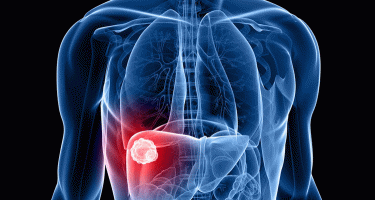
Hepatocellular carcinoma (HCC), a prevalent form of cancer, profoundly influences the progression and prognosis of the disease through immune response mechanisms.
The tumour microenvironment plays a pivotal role in fostering immune suppression and maintaining self-tolerance, which are crucial in developing and refining immunotherapy approaches.
The study was recently published in the Journal of Clinical and Translational Hepatology.
In our comprehensive review, we initially delve into the characteristics of the tumour microenvironment in HCC, elucidating the predominant immunosuppressive mechanisms at play and the biomarkers pivotal for tracking the disease progression and therapeutic response.
Key biomarkers such as α-fetoprotein (AFP), used for diagnosis and monitoring, and emerging molecular markers are extensively discussed.
Central to our discussion is the transformative role of antibody-based therapies, particularly immune checkpoint inhibitors (ICIs).
These therapies, which include monoclonal antibodies targeting programmed cell death protein 1 (PD-1), cytotoxic T-lymphocyte-associated protein 4 (CTLA-4), and programmed death-ligand 1 (PD-L1), have revolutionised the approach to HCC treatment.
We delve into the specifics of how these therapies reinvigorate the immune system's ability to recognise and attack tumour cells, discussing their application both as monotherapies and in combination with other targeted therapies.
This segment underscores the significance of ICIs in managing advanced HCC, providing new avenues for first-line and subsequent treatments.
Additionally, the review explores various cellular immunotherapies such as T cell receptor (TCR) T cell therapy and chimeric antigen receptor (CAR) T cell therapy.
The adaptability of these therapies to individual patient profiles illustrates the shift towards personalised medicine in oncology, aiming to optimise treatment efficacy based on unique tumour characteristics and patient immune profiles.
The potential of HCC vaccines, adjuvant immunotherapy, and oncolytic virotherapy is also thoroughly reviewed.
Each of these therapeutic strategies exemplifies cutting-edge advances aiming to prime the immune system more effectively against HCC.
We discuss the development stages of various vaccine types, their mechanisms of action, and the potential they hold in preventing recurrence and prolonging patient survival.
In conclusion, our detailed review highlights the dynamic and rapidly evolving landscape of HCC treatment.
It reflects on the significant strides made in harnessing the immune system against HCC through innovative immunotherapies and sets the stage for future research that could unlock even more effective treatment modalities.
The continuous refinement of immunotherapeutic approaches promises to enhance outcomes for patients with HCC, transforming the prognosis of this challenging cancer.
Source: Xia & He Publishing Inc.
We are an independent charity and are not backed by a large company or society. We raise every penny ourselves to improve the standards of cancer care through education. You can help us continue our work to address inequalities in cancer care by making a donation.
Any donation, however small, contributes directly towards the costs of creating and sharing free oncology education.
Together we can get better outcomes for patients by tackling global inequalities in access to the results of cancer research.
Thank you for your support.